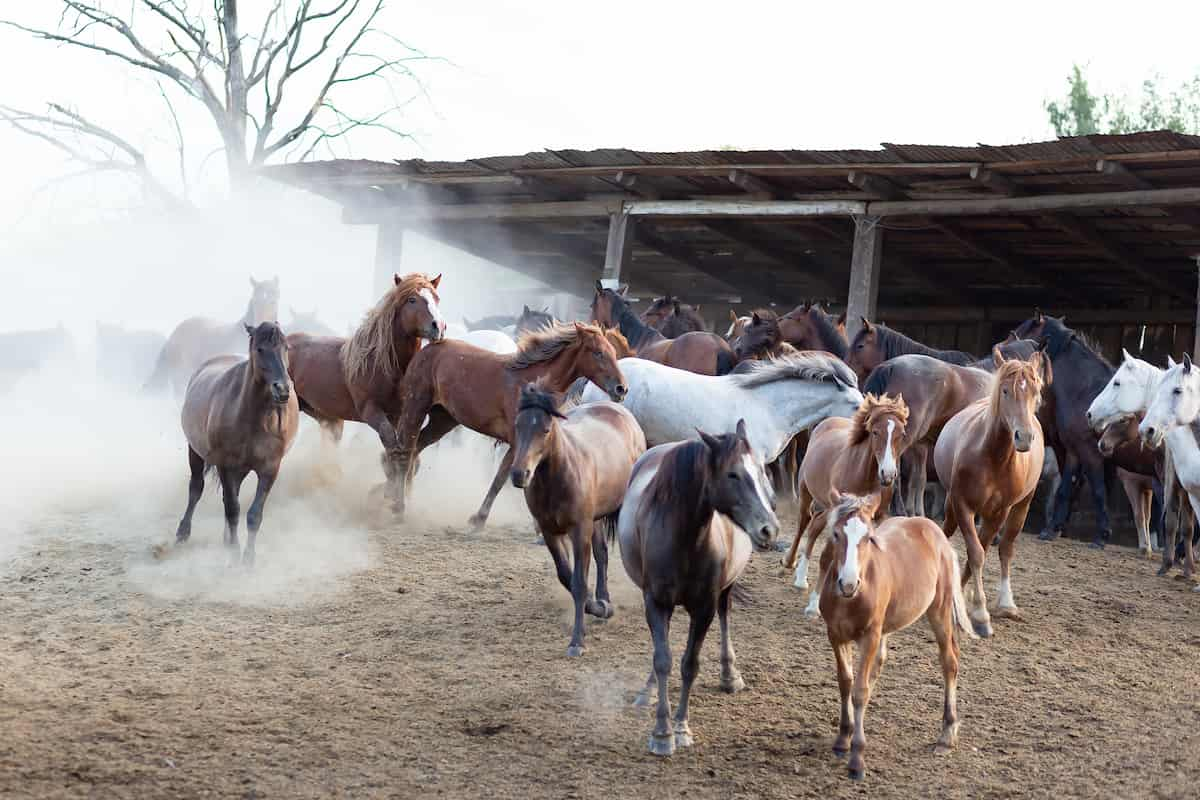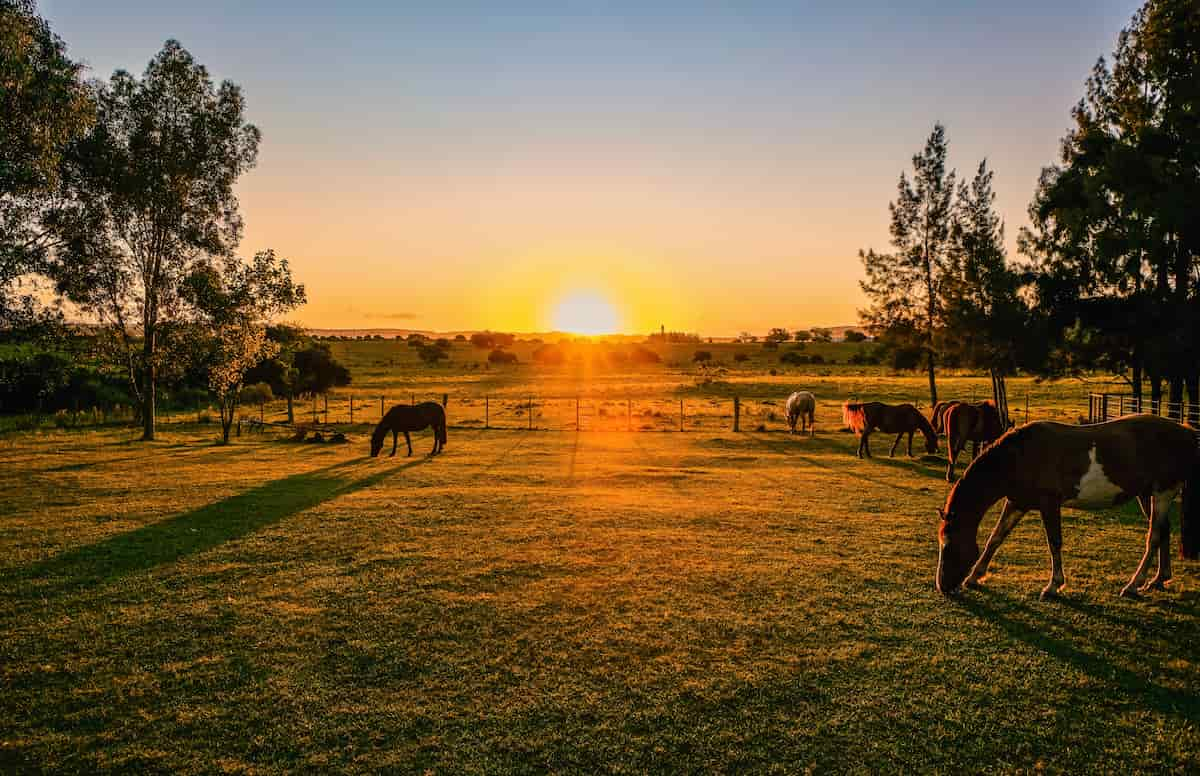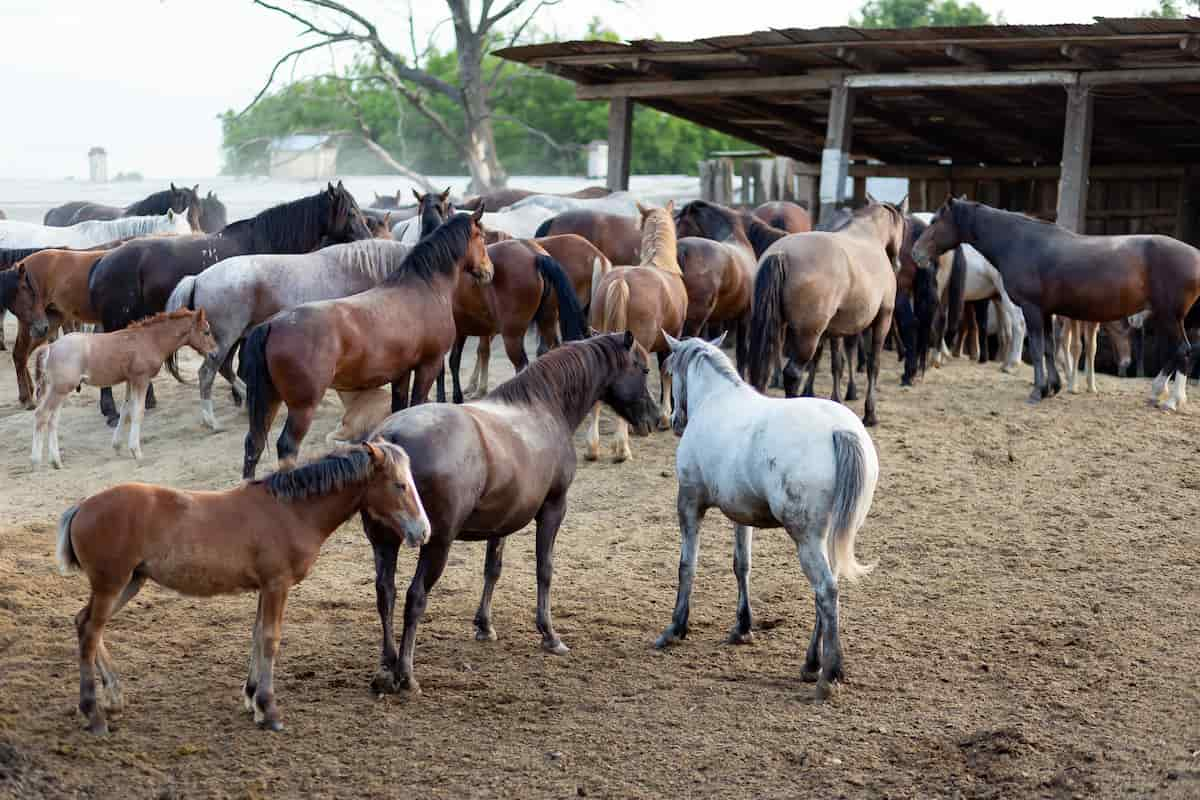Horse farming is a business venture that involves breeding, training, and selling horses. Starting a horse farm requires careful planning, management, and care to ensure the business’s success. Below we learn how to start a horse farm in 10 steps and a horse farming business plan.

How to Start Horse Farming in 10 Steps
Business Plan
The first step in starting a horse farming business is to develop a comprehensive business plan. It will help you identify the resources you need to get started and the steps you need to take to achieve your goals.
Suitable Location
Your horse farm’s location is critical to your business’s success. You should choose a location that is easily accessible, has ample space for your horses to graze, and has good drainage. Consider the climate and the availability of water and shelter when selecting a location.
Secure Funding
Starting a horse farm can be expensive. You must secure funding to cover the cost of land, facilities, equipment, and horses. You can approach banks and investors or apply for government grants to secure your needed funding.
Build a Shelter
Several factors must be considered when planning the construction of a horse shelter. First, determine the number of horses using the shelter and calculate the appropriate size accordingly. Each horse needs a minimum of 100 square feet of living space, so ensure your shelter has enough room for all your horses. The height of the shelter is also important. It should be high enough to allow horses to stand comfortably without hitting their heads on the ceiling. Making the shelter 10-12 feet high is a good rule of thumb.
Another important factor to consider when building a horse shelter is the type of material to use. Wooden structures are popular because they are sturdy, durable, and blend well with the natural environment. On the other hand, steel structures are low-maintenance, long-lasting, and provide good protection from the elements. Whichever material you choose, ensure it is properly treated to prevent rotting, warping, or rusting. Lastly, provide good ventilation for the shelter by adding windows or vents to promote airflow and prevent the buildup of moisture and bacteria.
Purchase or Lease Horses
The type of horses you choose will depend on your business goals. You can purchase or lease horses from breeders or auctions. Make sure you select healthy, well-trained, and suitable horses for the activities you plan to offer on your farm.
Hire Staff
Hiring experienced staff is crucial for the success of your horse farming business. You will need skilled professionals such as trainers, veterinarians, and farriers to ensure the health and well-being of your horses. You may also need administrative staff to handle the business aspects of your farm.
Breeding
Breeding horses is a complex process that requires careful planning, preparation, and attention to detail. The first step in breeding your horses is choosing a mate for your mare. Look for a stallion with good conformation, soundness, and temperament and a proven track record of producing healthy, successful offspring. Consider the breed and bloodlines of the mare and the stallion to ensure that the resulting foal has desirable traits and characteristics.
It’s also important to have both horses tested for genetic diseases and disorders to avoid passing any undesirable traits to the foal. Once you’ve selected a suitable mate for your mare, you must prepare her for breeding. This includes ensuring that she is in good health and condition and timing her breeding cycle appropriately. Most mares will come into heat once every 21-28 days, so it’s important to monitor her closely to determine the optimal time for breeding.
In case you missed it: How to Start Duck Farming in 10 Steps: Business Plan, Management, and Care

You can use various methods to assist in breeding, including natural or artificial insemination. Working with a veterinarian or equine reproduction specialist can help ensure the successful breeding process and that the resulting foal is healthy and strong. After breeding, it’s important to provide your mare with proper care and nutrition throughout her pregnancy to ensure the health and well-being of both the mare and the foal.
Develop a Marketing Strategy
You can advertise through social media, flyers, and brochures. You can also attend horse shows and events to promote your business.
Obtain Permits and Licenses
To operate a horse farming business, you may need to obtain permits and licenses from local and state authorities. These may include permits for land use, animal welfare, and business registration.
Care for Your Horses
Caring for horses involves providing them with proper nutrition, exercise, shelter, and medical care. Horses need access to clean water, a balanced diet that includes hay or pasture grass, and supplemental feed if necessary. In addition, regular exercise and turnout time are important for their physical and mental health. Adequate shelter is necessary to protect horses from extreme weather conditions.
Regular veterinary care, including vaccinations, dental check-ups, and deworming, is crucial for maintaining their health. Grooming and hoof care are essential for keeping horses clean and preventing common health issues. Building a strong bond with your horse through consistent care and attention can lead to a long and fulfilling partnership.
In case you missed it: How to Start Rabbit Farming in 10 Steps: Business Plan, Management, and Care

Additionally, the cost of horses themselves, as well as equipment, feed, and bedding, should also be considered. Starting a horse farm can be a major financial investment, and ongoing expenses such as veterinary care, maintenance, and staffing should also be factored into the budget. It is recommended to carefully research and plan before starting a horse farm to ensure that you understand the costs and are financially prepared for the undertaking.
Conclusion
In conclusion, starting a horse farming business requires careful planning, management, and care to ensure success. Starting a horse farming business can be a fulfilling and rewarding experience for those passionate about horses and committed to their well-being.
- Feed Your Flock for Less: Top 10 Tips to Save on Chicken Feed
- Ultimate Guide to Ossabaw Island Hog: Breeding, Raising, Diet, and Care
- Hatching Answers: The Top 10 Reasons Your Chickens Aren’t Laying Eggs
- Eggs and Economics: Breaking Down the Cost of Raising Backyard Chickens
- Defend Your Greens: Proven Methods to Keep Iguanas Out of Your Garden
- Ultimate Guide to Cinnamon Queen Chicken: A Comprehensive Guide for Beginners
- Ultimate Guide to California Tan Chicken: Breeding, Raising, Diet, Egg-Production and Care
- Ultimate Guide to Marsh Daisy Chicken: Breeding, Raising, Diet, and Care
- 10 Types of Chicken Farming Businesses You Can Start for Profits